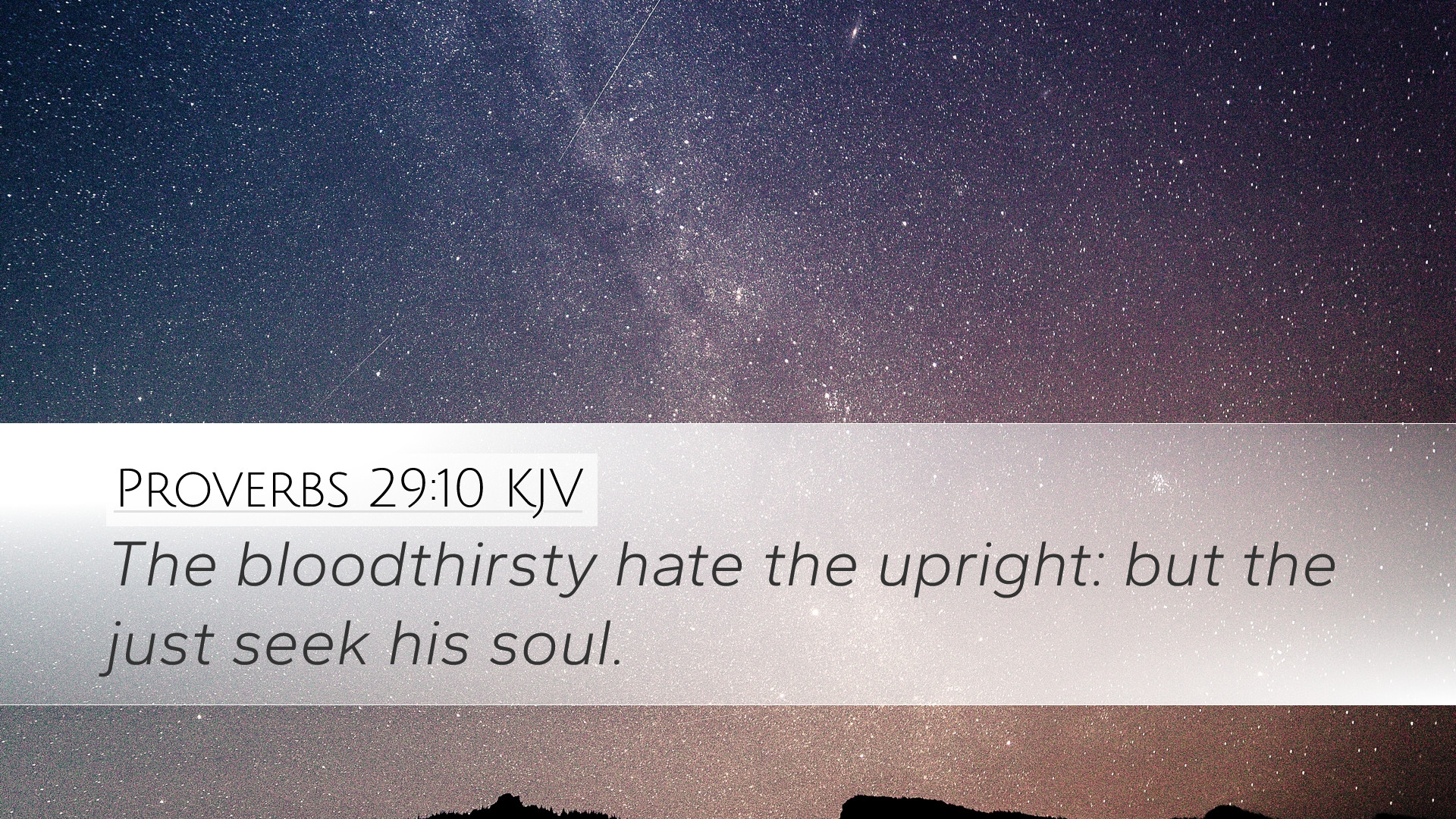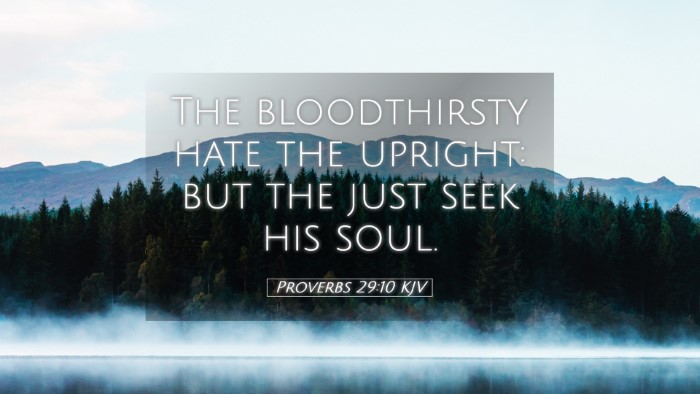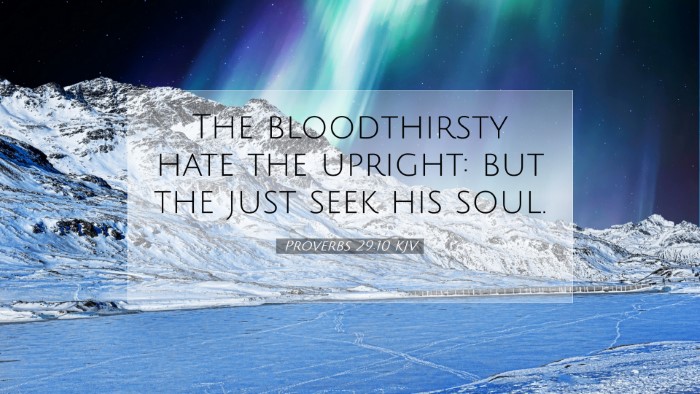Commentary on Proverbs 29:10
Verse: “The bloodthirsty hate the upright: but the just seek his soul.” (Proverbs 29:10, KJV)
Introduction
The verse in Proverbs 29:10 succinctly captures the conflict between the righteous and the wicked. This tension is a recurring theme throughout the Scriptures and highlights the moral dichotomy present in human behavior. In this commentary, we will draw from the insights of esteemed biblical scholars such as Matthew Henry, Albert Barnes, and Adam Clarke to explore the multifaceted meanings of this verse.
Context and Background
Proverbs is a book of wisdom literature, traditionally attributed to King Solomon, offering insights into practical living and moral ethics. The verses preceding and following 29:10 emphasize righteousness, justice, and the characteristics of both the upright and the wicked.
Exegesis of Proverbs 29:10
-
Bloodthirsty:
Matthew Henry describes the “bloodthirsty” as those consumed by violence and malice. Their hatred towards the upright stems from a desire to extinguish righteousness because it serves as a constant reminder of their own depravity.
-
Upright:
According to Albert Barnes, the “upright” symbolize individuals who uphold justice and righteousness, demonstrating a commitment to God’s laws. Their character is often a threat to those who wish to live immorally, thereby inciting hatred from the wicked.
-
Seeking the Soul:
Adam Clarke notes that the phrase “the just seek his soul” indicates a protective and redemptive quality. The righteous not only seek to preserve their own lives but also have a redemptive concern for the souls of others, including even their adversaries. This notion aligns with the broader biblical theme of loving one’s enemies.
The Conflict of Ideologies
This verse starkly illustrates the ideological conflict that exists between good and evil. The hatred that “bloodthirsty” individuals harbor toward the upright serves as a microcosm of the larger spiritual warfare depicted in the Scriptures. The just, in contrast, embody a counter-response to such hostility, marked by a seeking of righteousness and justice.
Theological Implications
-
Human Nature:
This passage reflects an essential truth about human nature: the presence of enmity between righteousness and sin. This animosity may be seen in various forms, whether societal conflict, personal animosities, or broader spiritual battles.
-
Divine Justice:
Barnes emphasizes that divine justice upholds the principle that righteousness will ultimately prevail over wickedness. The just will find vindication, while the bloodthirsty will face consequences for their actions.
-
Call to Action:
This verse serves as a clarion call for believers to remain steadfast in righteousness. It challenges readers to consider their responses to hostility and to embody a spirit that seeks the well-being of others, including those who oppose them.
Practical Application
For pastors, theologians, and students of Scripture, Proverbs 29:10 provides rich material for sermons and discussions focused on the nature of righteousness in a world that often opposes it. Here are some practical applications:
-
Encouraging Righteousness:
Church leaders can use this verse as an encouragement for congregants to uphold their integrity, especially in challenging circumstances.
-
Promoting Forgiveness:
The just seek the soul; hence, a focus on forgiveness and relational restoration should be emphasized in teachings and counseling.
-
Social Justice:
This commentary points toward a call for social justice, where believers should advocate for the marginalized, reflecting the unjust actions that the “bloodthirsty” perpetrate.
Conclusion
In summary, Proverbs 29:10 serves as a profound reminder of the spiritual realities that persist in the lives of believers. Drawing from the insights of Matthew Henry, Albert Barnes, and Adam Clarke, it illustrates the enmity between the wicked and the righteous, while simultaneously calling the faithful to demonstrate love, integrity, and a deep concern for others’ souls. This balance of truth and grace is vital for effective ministry and personal growth in one’s faith journey.


